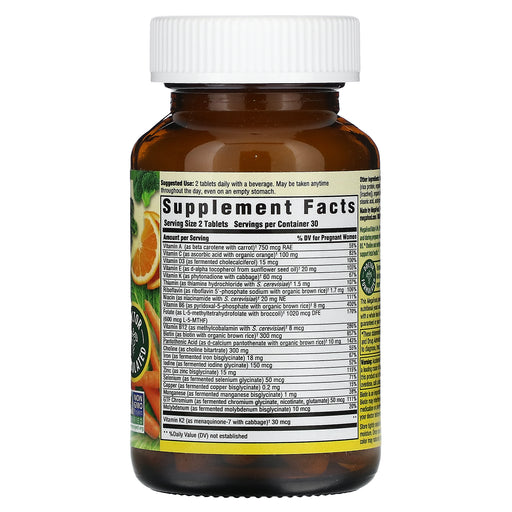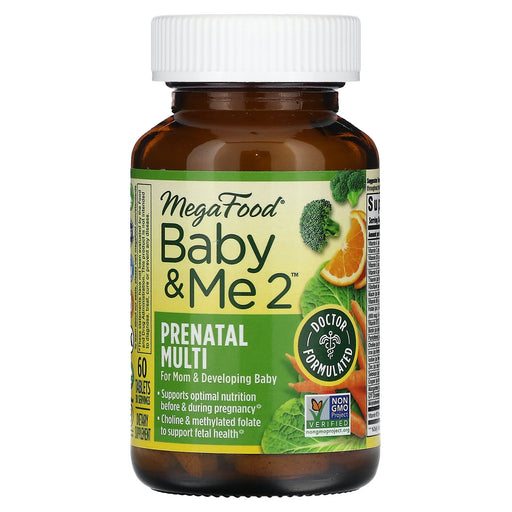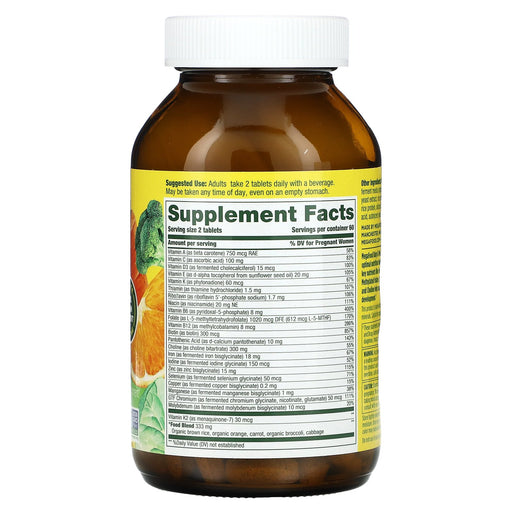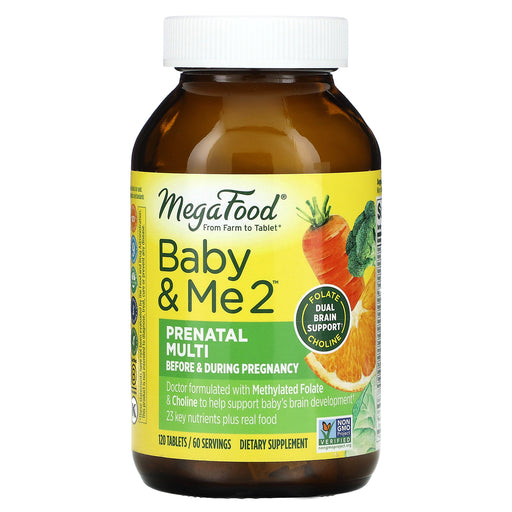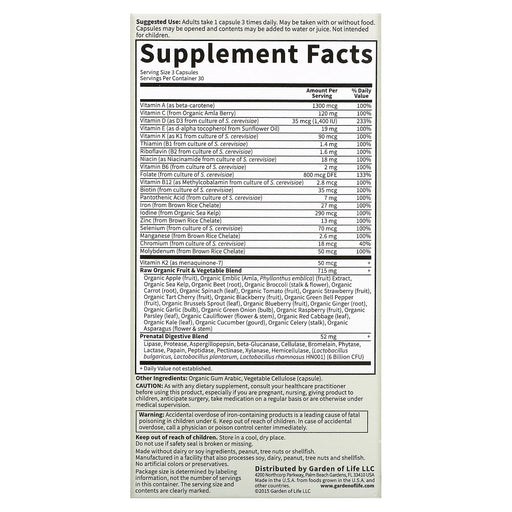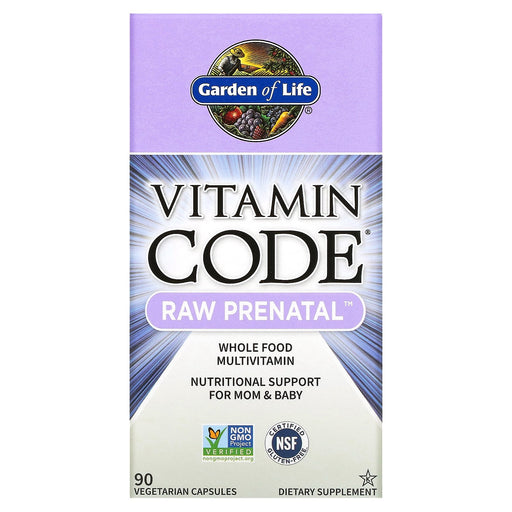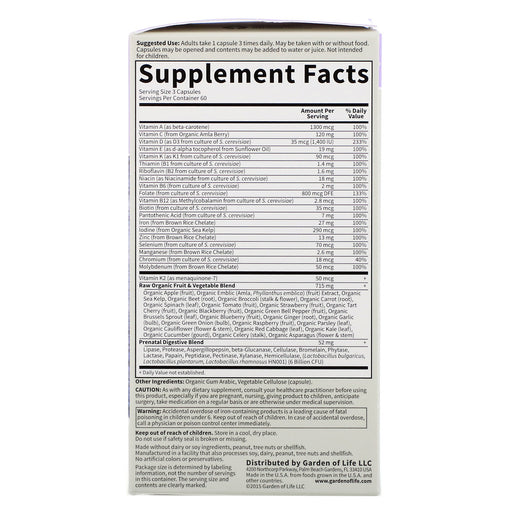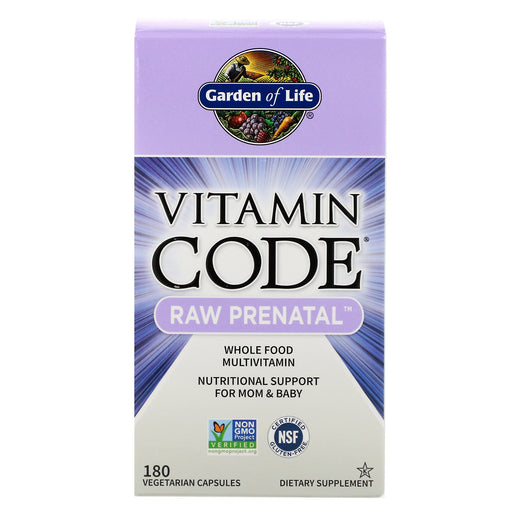
Supporting a Healthy Pregnancy with Prenatal Multivitamins
Prenatal multivitamins are specially formulated supplements designed to meet the unique nutritional needs of women during pregnancy. These comprehensive formulas provide essential vitamins, minerals, and other nutrients that support fetal development, maternal health, and a healthy pregnancy outcome.
The Importance of Prenatal Nutrition
During pregnancy, a woman's nutritional requirements increase significantly to support the growth and development of the fetus, as well as to maintain her own health. Adequate intake of key nutrients, such as folic acid, iron, calcium, and omega-3 fatty acids, is crucial for proper fetal development, the prevention of birth defects, and overall maternal well-being.
While a balanced, nutrient-rich diet is the foundation of prenatal nutrition, prenatal multivitamins can help fill potential nutrient gaps and ensure that both mother and baby receive the essential vitamins and minerals they need for optimal health.
Key Nutrients in Prenatal Multivitamins
Prenatal multivitamins typically contain a comprehensive blend of essential nutrients that are vital for fetal development and maternal health. Some of the most important vitamins and minerals found in these formulas include:
- Folic Acid (Vitamin B9): Folic acid is critical for the prevention of neural tube defects, such as spina bifida, and supports proper fetal brain and spinal cord development.
- Iron: Pregnant women require increased amounts of iron to support the growth of the fetus and placenta, as well as to maintain their own red blood cell production and prevent anemia.
- Calcium: Adequate calcium intake is essential for the development of strong bones and teeth in the fetus, as well as for maintaining maternal bone health.
- Vitamin D: Vitamin D aids in calcium absorption and supports fetal bone development, as well as maternal immune function and mood regulation.
- Omega-3 Fatty Acids (DHA): DHA is crucial for fetal brain and eye development, as well as for supporting maternal cognitive function and emotional well-being.
- Iodine: Iodine is necessary for the production of thyroid hormones, which play a vital role in fetal brain development and the regulation of maternal metabolism.
- Choline: Choline is important for fetal brain development and may help reduce the risk of certain birth defects.
Benefits of Prenatal Multivitamin Supplementation
Incorporating a prenatal multivitamin into your daily routine during pregnancy can offer several potential benefits, including:
- Reduced Risk of Birth Defects: Adequate intake of key nutrients, such as folic acid and choline, can help reduce the risk of neural tube defects and other birth defects.
- Fetal Development Support: Prenatal multivitamins provide essential nutrients that support optimal fetal growth and development, including brain, eye, and skeletal development. Vitamins and minerals like vitamin A, vitamin C, vitamin D, calcium, and zinc play important roles in these processes.
- Maternal Health Maintenance: Prenatal multivitamins help support the increased nutritional needs of pregnant women, ensuring that they maintain their own health while nourishing their growing baby.
- Pregnancy Wellness: The vitamins and minerals in prenatal multivitamins, such as vitamin E, vitamin B6, and magnesium, contribute to overall maternal well-being, supporting energy levels, immune function, and emotional balance throughout pregnancy.
- Long-Term Health Benefits: Adequate prenatal nutrition can have long-lasting positive effects on the health of both mother and child, potentially reducing the risk of certain chronic diseases later in life.
Choosing the Best Prenatal Multivitamin
When selecting a prenatal multivitamin, consider the following factors to ensure you choose a high-quality product that meets your needs:
- Comprehensive Formula: Look for a multivitamin that contains a wide range of essential nutrients, including folic acid, iron, calcium, vitamin D, omega-3 fatty acids (DHA), iodine, and choline, in amounts tailored to the needs of pregnant women.
- Bioavailability: Opt for a multivitamin that uses highly bioavailable forms of nutrients, such as methylated folate, chelated iron, and vitamin D3, for optimal absorption and utilization by the body.
- Quality and Safety: Choose a prenatal multivitamin that is manufactured by a reputable company, free from harmful additives and contaminants, and third-party tested for purity and potency.
- Doctor Recommendations: Consult with your healthcare provider to determine which prenatal multivitamin is best suited to your individual needs, taking into account factors such as your diet, health status, and any pre-existing conditions.
- Easy to Take: Consider the form of the multivitamin (e.g., capsule, tablet, or liquid) and choose one that is easy for you to take consistently throughout your pregnancy.
Maximizing the Benefits of Prenatal Multivitamins
To get the most out of your prenatal multivitamin, consider the following tips:
- Start Early: Begin taking a prenatal multivitamin as soon as you start trying to conceive or upon learning of your pregnancy to ensure optimal nutrient support from the very beginning.
- Take as Directed: Follow the recommended dosage instructions on the product label, and take your multivitamin with meals to enhance absorption and reduce the risk of digestive discomfort.
- Maintain a Balanced Diet: While prenatal multivitamins can help fill potential nutrient gaps, they should be used in conjunction with a balanced, nutrient-rich diet that includes a variety of whole foods, fruits, vegetables, lean proteins, and healthy fats.
- Stay Hydrated: Drink plenty of water throughout the day to support proper digestion, nutrient absorption, and overall health during pregnancy.
- Store Properly: Keep your prenatal multivitamin in a cool, dry place, away from direct sunlight and moisture, to maintain its potency and freshness.
Nourish Your Pregnancy with Comprehensive Prenatal Multivitamin Support
Prenatal multivitamins are an essential component of a healthy pregnancy, providing the vital nutrients needed to support optimal fetal development, maternal well-being, and a positive pregnancy outcome. By delivering a comprehensive blend of essential vitamins, minerals, and other nutrients, these specialized formulas help ensure that both you and your growing baby receive the nourishment needed to thrive.
Explore our curated selection of high-quality prenatal multivitamins and experience the power of targeted prenatal nutrition. With a commitment to purity, efficacy, and the unique needs of expectant mothers, Health Orchard is here to support you on your journey towards a healthy, vibrant pregnancy.
Frequently Asked Questions about Prenatal Multivitamins
1. What does prenatal multivitamin do?
Prenatal multivitamins are designed to provide essential nutrients needed for a healthy pregnancy. They typically contain:
- Folic acid: Helps prevent neural tube defects
- Iron: Supports fetal growth and development, and prevents maternal anemia
- Calcium: Aids in the development of the baby's bones and teeth
- Vitamin D: Helps the body absorb calcium and supports immune function
- Other key vitamins and minerals: Support overall health of the mother and baby during pregnancy
2. Which multivitamin is best for pregnancy?
The best prenatal multivitamin may vary based on individual needs, but generally, a good prenatal vitamin should contain:
- At least 400 mcg of folic acid
- 27 mg of iron
- 1,000 mg of calcium
- 600 IU of vitamin D
Some top-rated prenatal vitamins include:
- Nature Made Prenatal Multi + DHA
- Rainbow Light Prenatal One Multivitamin
- Garden of Life Vitamin Code RAW Prenatal
- New Chapter Perfect Prenatal Multivitamin
Always consult with your healthcare provider to determine the best prenatal multivitamin for your specific needs.
3. Which are the best prenatal vitamins?
Some of the best prenatal vitamins include:
- Nature Made Prenatal Multi + DHA: Contains key nutrients and omega-3 fatty acids for fetal brain development
- Rainbow Light Prenatal One Multivitamin: Made with natural, plant-based ingredients and provides comprehensive nutrition
- Garden of Life Vitamin Code RAW Prenatal: Contains raw, whole-food ingredients and probiotics for digestive health
- New Chapter Perfect Prenatal Multivitamin: Features fermented nutrients for better absorption and includes organic herbs
Ultimately, the best prenatal vitamin is one that meets your individual needs and is recommended by your healthcare provider.
4. Is it good to take prenatal vitamins when not pregnant?
While prenatal vitamins are primarily designed for pregnant women, they can be beneficial for non-pregnant women in certain situations:
- Women trying to conceive: Prenatal vitamins can help ensure optimal nutrient levels before pregnancy
- Women with nutrient deficiencies: Prenatal vitamins can help address specific nutrient shortfalls
- Breastfeeding women: Prenatal vitamins can support the increased nutritional demands of breastfeeding
However, for most non-pregnant women, a standard multivitamin is sufficient to meet their nutritional needs. Always consult with a healthcare professional before starting any supplement regimen.
5. Is it good to take Prenatals everyday?
Yes, it is generally recommended to take prenatal vitamins daily throughout pregnancy and often during the preconception and postpartum periods as well. Prenatal vitamins are designed to provide the essential nutrients needed for fetal development and maternal health. Consistent daily intake ensures that the mother and baby receive the necessary nutritional support. However, it's crucial to follow the recommended dosage and consult with a healthcare provider to determine the most appropriate prenatal vitamin and duration of use for your individual needs.
6. Should I take prenatal vitamins everyday?
Yes, it is generally recommended to take prenatal vitamins every day during pregnancy, and often during the preconception and postpartum periods as well. Daily consumption ensures that you and your baby consistently receive the essential nutrients needed for healthy development. Prenatal vitamins are specifically formulated to meet the increased nutritional demands of pregnancy, such as higher requirements for folic acid, iron, and calcium. However, it's essential to consult with your healthcare provider for personalized advice on the most suitable prenatal vitamin and the recommended duration of use based on your individual needs.
7. What are the benefits of prenatal vitamins?
Prenatal vitamins offer numerous benefits for both the mother and the developing baby:
- Fetal development: Provide essential nutrients for proper growth and development of the baby's organs and tissues
- Neural tube defects prevention: Folic acid helps prevent serious birth defects of the brain and spine
- Anemia prevention: Iron supports the increased blood volume during pregnancy and helps prevent maternal anemia
- Bone health: Calcium and vitamin D promote strong bone development in the baby and maintain maternal bone health
- Immune support: Various vitamins and minerals support the immune systems of both the mother and baby
- Postpartum recovery: Nutrients help the mother's body recover after delivery and support breastfeeding
Taking prenatal vitamins as directed by a healthcare provider can contribute to a healthier pregnancy and better maternal and fetal outcomes.




